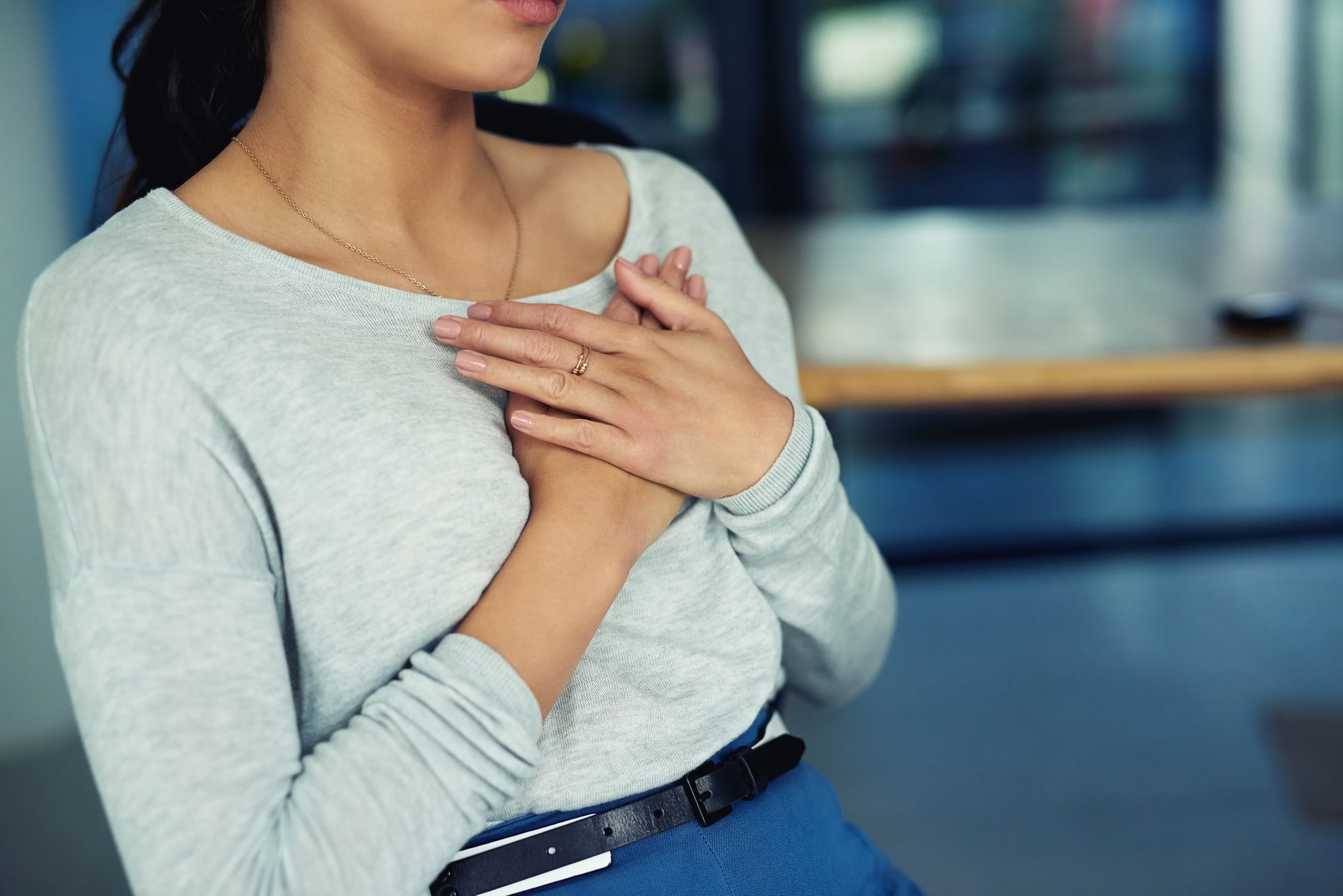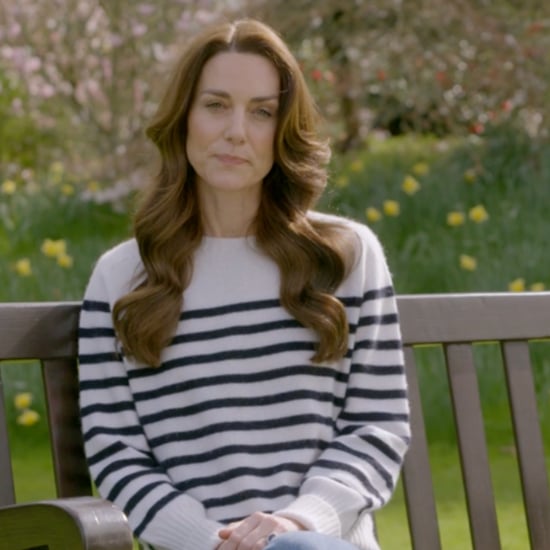A Doctor Says Breast Self-Exams Don't Always Detect Cancer
Mammograms Are the "Gold Standard" of Breast Cancer Screenings, a Doctor Says — What About Self-Exams?

Every woman has a one in eight chance of developing breast cancer in their lifetime, according to the American Cancer Society. It's the second-most common cancer in American women after skin cancer. Family history will up your risk and so will having, for instance, a BRCA gene mutation — this increases your likelihood for breast cancer by the age of 80 by, on average, 70 percent, though some studies have shown a higher risk of up to 87 percent. Read more about risk factors here.
Neil Iyengar, MD, a medical oncologist and researcher from Memorial Sloan Kettering with an expertise in breast cancer, stressed to POPSUGAR the importance of knowing your body and your genes. "We know that the gold standard for screening for breast cancer is a mammogram," he explained. "So I certainly recommend once-a-year mammograms in women who are at standard risk starting at age 40."
Note: Mammogram guidelines for patients who are at average risk of developing breast cancer range depending on who you ask — the American Cancer Society states that women should get annual mammograms by age 45, and Memorial Sloan Kettering recommends by age 40. Under the Affordable Care Act, all new health insurance plans must cover mammogram costs for women over 40 every one to two years, according to the Susan G. Komen foundation. If you have an increased risk, as mentioned earlier, you should talk to your doctor about going for mammograms earlier in life. For instance, Memorial Sloan Kettering suggests that women with a family history should get an annual mammogram "starting no later than ten years before the age of the earliest diagnosis in the family (but not earlier than age 25 and not later than age 40)."
Dr. Iyengar also recommends having a breast exam done by your primary care provider or gynecologist annually. But when it comes to breast self-exams, feeling around for any deformities and abnormalities yourself — which you can easily learn how to do — he said he doesn't want you to stress if you forget to do this on a regimented basis. (Although, we want to point out that if you don't have access to mammograms, staying aware of what is "normal" for your breasts is important. As the American Cancer Society wrote on its website, "Women should also know how their breasts normally look and feel and report any breast changes to a health care provider right away.")
This topic has been a bit controversial, Dr. Iyengar admitted, "because doing self-exams has actually not been shown to increase survival from breast cancer, whereas doing mammograms has been shown to improve outcomes." The American Cancer Society writes on its website, "There is very little evidence that these tests help find breast cancer early when women also get screening mammograms." (Note: a breast self-exam won't diagnose cancer itself, but some women we've spoken to have said that they were alerted of a possible problem when feeling their breasts themselves.) In addition, this meta-analysis discusses the lack of evidence that breast self-exams lessen the mortality rate of women with breast cancer.
Dr. Iyengar continued, "I wouldn't want a person to feel like they missed the cancer and they're somehow to blame for not finding it." In fact, he pointed out that it's hard for even medical professionals to tell if a tumor in the breast is cancerous or not just by feeling it. "I can't tell you how many women I've had in my office, and I feel so terrible for them because they'll say to me, 'I wasn't checking my breasts. How could I have missed this?' And I'll say to them, 'It's definitely not your fault. We don't know if a self-exam would have helped you here,'" he recalled. "That's why I think it's really important that we make it clear nobody's really at fault if they are diagnosed."
So, while Dr. Iyengar said he doesn't think women have to be on a strict schedule of doing monthly breast self-exams "as we used to recommend," he does think it's a good idea to be aware of your breasts and to note anything unusual. (You can still check them out in, let's say, the shower periodically.) It's up to you, of course, and your risk factors, but "most abnormalities in the breast are hormonal-related and will go away on their own," he said. Therefore, he doesn't make a strong recommendation for how often you should do a self-exam; "I just make the recommendation of being self-aware of your body."







